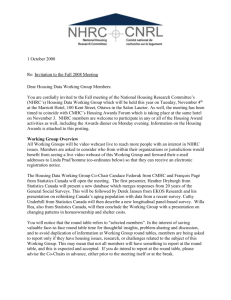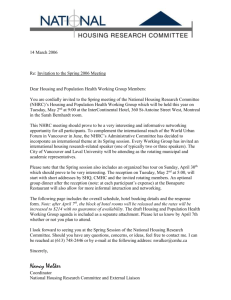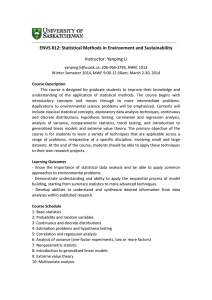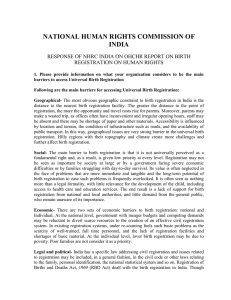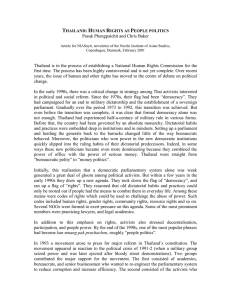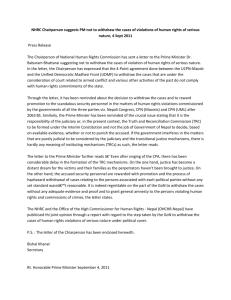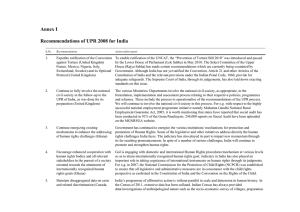Text of speech by Mr. Justice KG Balakrishnan, Chairperson, NHRC
advertisement
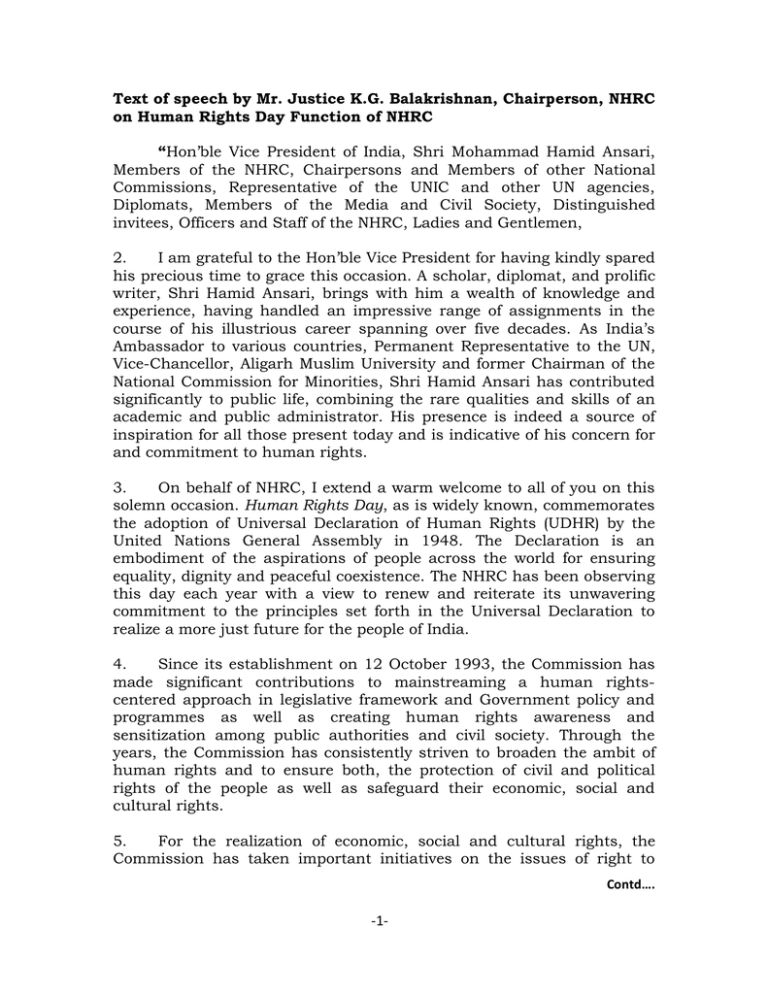
Text of speech by Mr. Justice K.G. Balakrishnan, Chairperson, NHRC on Human Rights Day Function of NHRC “Hon’ble Vice President of India, Shri Mohammad Hamid Ansari, Members of the NHRC, Chairpersons and Members of other National Commissions, Representative of the UNIC and other UN agencies, Diplomats, Members of the Media and Civil Society, Distinguished invitees, Officers and Staff of the NHRC, Ladies and Gentlemen, 2. I am grateful to the Hon’ble Vice President for having kindly spared his precious time to grace this occasion. A scholar, diplomat, and prolific writer, Shri Hamid Ansari, brings with him a wealth of knowledge and experience, having handled an impressive range of assignments in the course of his illustrious career spanning over five decades. As India’s Ambassador to various countries, Permanent Representative to the UN, Vice-Chancellor, Aligarh Muslim University and former Chairman of the National Commission for Minorities, Shri Hamid Ansari has contributed significantly to public life, combining the rare qualities and skills of an academic and public administrator. His presence is indeed a source of inspiration for all those present today and is indicative of his concern for and commitment to human rights. 3. On behalf of NHRC, I extend a warm welcome to all of you on this solemn occasion. Human Rights Day, as is widely known, commemorates the adoption of Universal Declaration of Human Rights (UDHR) by the United Nations General Assembly in 1948. The Declaration is an embodiment of the aspirations of people across the world for ensuring equality, dignity and peaceful coexistence. The NHRC has been observing this day each year with a view to renew and reiterate its unwavering commitment to the principles set forth in the Universal Declaration to realize a more just future for the people of India. 4. Since its establishment on 12 October 1993, the Commission has made significant contributions to mainstreaming a human rightscentered approach in legislative framework and Government policy and programmes as well as creating human rights awareness and sensitization among public authorities and civil society. Through the years, the Commission has consistently striven to broaden the ambit of human rights and to ensure both, the protection of civil and political rights of the people as well as safeguard their economic, social and cultural rights. 5. For the realization of economic, social and cultural rights, the Commission has taken important initiatives on the issues of right to Contd…. -1- health, right to education, rights of women, children, persons with disabilities and displaced persons. It is also involved in promoting human rights education and awareness generation by organizing programmes for various sections of society. Simultaneously, the Commission has endeavoured to promote a culture of human rights in the country by pressing for the introduction of human rights education in the school and university curricula. 6. The NHRC has been organising programmes for government officials, police and security forces, field functionaries, representatives of educational institutions and members of civil society to encourage them to make a rights-based approach central to their work and activities. In 2012-13 alone, the Commission conducted nearly 114 training programmes on Human Rights and related issues apart from the monthlong Summer and Winter Internship programmes for University students from across the country. 7. Furthermore, several seminars/conferences on human rights issues were also organized. During the year, the Commission organized, among others, a conference on Leprosy, seminar on Mental Health, National Conference on Human Rights Education, Conference on Right to Food, National Conference on Missing Children, Workshop on Human Rights Training for Police & Para Military Personnel and most recently, a National Conference on Health Care as a Human Right. 8. The NHRC is particularly concerned about the Rights of Women, given the increase in the instances of sexual assault and crime against women in recent times. To this end, the Commission has undertaken numerous initiatives, including the organization of a National Consultation on Violence against Women in January this year with nation-wide participation of State functionaries as well as civil society. Some of the recommendations that emanated from the said Consultation were further crystallised into the suggestions on changes in existing laws and related issues sent by the Commission to the Justice Verma Committee and the Parliamentary Standing Committee on Home Affairs. In addition, the NHRC, India has initiated a number of steps to implement the Amman Declaration and Programme of Action concerning the rights of women and girl children, adopted at the 11th International Conference of the International Coordinating Committee of NHRIs in Jordan last year. 9. There has been a surge in the number of complaints received by the Commission over the years, which has steadily grown from 496 complaints in 1993-94 to 1,07,655 fresh cases in the financial year Contd…. -2- 2012-13, with action having been completed in nearly 99,756 cases. The phenomenal increase in the number of complaints is indicative of the growing awareness of their rights among the people as also their growing faith in the Commission. 10. Apart from recommending punitive action against the guilty public servants, the Commission has recommended crores of Rupees as relief to victims and their next of kin. During 2012-13, the Commission recommended the payment by Government agencies of interim relief in 355 cases amounting to nearly Rs.10.67 Crore. It is indeed satisfying to note that in almost all the cases, the Government authorities have complied with the NHRC’s recommendations for providing relief and initiating punitive action against errant officials. 11. Apart from investigating the complaints it receives, the Commission also takes cognizance of particularly grave human rights situations. In such cases, the Commission carries out independent visits to assess the situation on ground. Last year, in nearly 32 cases, the NHRC sent out its own investigation teams for spot enquiries. For instance, last year, it sent its Team to Kokrajhar, Dhubri and Chirang Districts in Assam after incidents of strife between communities to monitor the relief and rehabilitation measures being taken in relief camps. More recently, a team was sent to Uttarakhand to assess the relief, rehabilitation and security measures put in place by the Uttarakhand Government in the wake of the natural calamity. It also sent a Team to make an assessment of the riot-affected city of Muzzafarnagar in Uttar Pradesh this year. The reports and recommendations of its Teams, based on their field enquiries, were subsequently sent to the State Governments for implementation, which the Commission continues to monitor till such time as the State Government has fully complied with its recommendations. 12. Despite its limited resources, the Commission’s constant endeavour has been to make itself as accessible as possible and reach out to people from all walks of life, including those living in the remotest parts of the country. The NHRC has accordingly been holding Camp Commission Sittings across States to ensure speedy disposal of human rights cases and in the past year, organized its Camp Sittings in Assam, Meghalaya, Chhattisgarh and Manipur and its next Camp Sitting is scheduled to be held in Uttar Pradesh early next year. During these Camp Sittings, the Commission decides important pending cases and human rights issues after hearing the aggrieved people in the presence of the officers of the respective state governments. It also holds extensive Contd…. -3- interactions with the Government Officials, media and local NGOs working on various human rights concerns in these States. 13. In addition, the Commission has also been undertaking visits to prisons, anganwadi centres, primary schools, and primary healthcare centres, among others, to assess their condition and identify the effectiveness of the various Flagship Programmes of the Government on the ground, so as to see the availability of basic services to the common people. 14. The Commission has been organizing Open Hearings across various States, on complaints pertaining to atrocities or denial of rights of persons belonging to Scheduled Castes. This is in keeping with the recommendations of the K.B. Saxena Report, commissioned by the NHRC. Open hearings have been held so far in Odisha, Gujarat, Chennai, Rajasthan, Maharashtra and Uttar Pradesh. During the hearings, the Commission hears and decides the complaints of aggrieved persons in the presence of the senior Government Functionaries. 15. The NHRC uses the full range of its instrumentalities to monitor the responsiveness of public servants to human rights concerns. It has constituted a number of expert Core Groups and appointed Special Rapporteurs, whom it consults on key human rights issues, such as, disability, healthcare, mental health, right to food, protection and welfare of elderly persons and Silicosis, among others. The NHRC, India also has a Focal Point for Human Rights Defenders, who can be approached round the clock in the event of potential or extant threats to the personal life or liberty of human rights defenders in the discharge of their work. 16. Having evolved a stringent reporting system and guidelines, the Commission, in 2012-13, continued to monitor custodial deaths and rapes, deaths in alleged fake encounters etc. as well as living conditions in prisons, with special attention to aspects of over-crowding, medical care for prisoners and the sensitization of prison staff to the rights of inmates. The Commission continued to stress the need for systemic reforms within the police and in prisons. 17. To further strengthen human rights protection within the country, the Commission has also written to State Governments regarding the establishment of State Human Rights Commissions where these do not exist as yet and to strengthen those that are already functioning. So far, 24 States have set up State Human Rights Commissions and the Commission hopes that the remaining States will work pro-actively to set up these Commissions at the earliest. The NHRC has also taken Contd…. -4- initiatives to strengthen and improve the capabilities of the SHRCs, most notably through its initiative to evolve a basic structure, minimum manpower and financial requirements for SHRCs to enable them discharge the functions assigned to them under the Protection of Human Rights Act, 1993. 18. To create human rights awareness among members of civil society, the Commission continues to bring out publications such as its monthly newsletters, annual journal, and manuals and is consistently trying to get these publications translated into regional languages so as to spread the message of human rights far and wide. Last year, it published ‘A Handbook on International Human Rights Conventions’, a ‘Handbook on Professional Policing’, ‘Report on the Open Hearings of the Commission’, a publication on ‘Care and Treatment in Mental Health Institutions’, and the ‘Manavadhikar Sanchika’ (in Hindi), among several others. 19. At the International level too, the Commission continues to play an active role. The NHRC, India is an `A’ Accredited NHRI and member of the International Coordinating Committee (ICC) of National Institutions for the Promotion and Protection of Human Rights, and a Founder Member of the Asia Pacific Forum of National Human Rights Institutions (APF). During the year, the Commission actively participated in the annual meetings of these bodies and shared its best practices with other NHRIs. The Commission recently attended the 18th Annual Meeting and Biennial Conference of the APF in Qatar, where it was decided that the NHRC, India would host the 19th Annual Meeting of the Asia Pacific Forum. 20. In addition, the Commission also continues to monitor the implementation of the recommendations of the Second Universal Periodic Review (UPR) process of the Human Rights Council, for India. The UPR is a unique process of the UN aimed at reviewing the human rights records of all its Member States. The second UPR for India was held in May 2012, for which the Commission submitted its own report, which was prepared after detailed regional and national consultations with NGOs, academics, government officials and SHRCs. 21. The Commission also interacted with delegations from NHRIs of other countries such as Nepal, Myanmar and Afghanistan, and also held discussions with the UN Special Mandate Holder on Violence against Women who visited the Commission in April this year, the UN High Commissioner for Refugees, and other representatives of UN Human Rights Bodies. Further, officers of the Commission recently visited the Afghanistan Independent Human Rights Commission to impart training Contd…. -5- to their officers for capacity-building and technical assistance on specific areas of interest such as complaint management and disposal, among others. 22. Despite such expansive range of activities of the NHRC there remain considerable challenges to the effective realization of human rights in the country. While the NHRC has a significant role to play, it can at best work as a catalyst in assisting efforts towards safeguarding the rights of the common people. The contributions of the government, elected representatives, the media and civil society will be equally crucial. 23. The Commission regards the government and civil society as indispensable partners in the fight against human rights violations and key to building an energetic and vibrant democracy. Governments must make certain that the policies and programmes devised by them have a strong human rights component to ensure a truly beneficial and equitable utilization of national and human resources. As for members of the civil society, it is the duty of each individual to respect the rights of the ‘other’, particularly those who are the most vulnerable to the vagaries of social and economic forces. 24. On this significant day therefore, let us pledge to re-dedicate ourselves to achieving a just and equitable society through upholding the principles and ideals enshrined in our Constitution and the Universal Declaration for the protection and promotion of human dignity and the inviolable rights of all citizens of India. Thank you.” ***** Contd…. -6-
